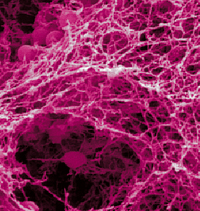Hygiene
Contact
Importance
Hygiene measures help to prevent exposure to unfavourable life conditions which could be experienced e. g. in the presence of infectious agents. To achieve this, the identity and common amounts of such agents and the ways of their distribution need to be known for defined environments.
Based on this knowledge, strategies for improving the defence mechanisms of an individual (disposition prophylaxis) and for preventing the agents' distribution as well as for eliminating infectious agents (exposition prophylaxis) can be installed.
Especially for the latter approach, microbes need to be detected even when present in very small amounts or in a non-culturable state. Also, the clonal identity of several microbial isolates should be demonstrable beyond reasonable doubt to document transmission routes.
Finally, the resulting data on the epidemiological situation is integrated into specific prevention strategies which in turn need to be promoted towards the medical staff of a given location. Taken together, the data and resulting measures are part of a thorough risk management.
Main Topics
Current research projects on hygiene topics in the institute are
Optimization and validation of microscopic, culture- and nucleic acid-based detection techniques for bacteria and fungi
Epidemiology of selected infectious agents in materials from the human host and its environment
Confirmation of transmission routes by molecular techniques
Efficacy analysis of techniques and devices for preventing infectious diseases by in vitro assays and statistical surveys
Scientific evaluation of infectious disease cases for medical staff education

